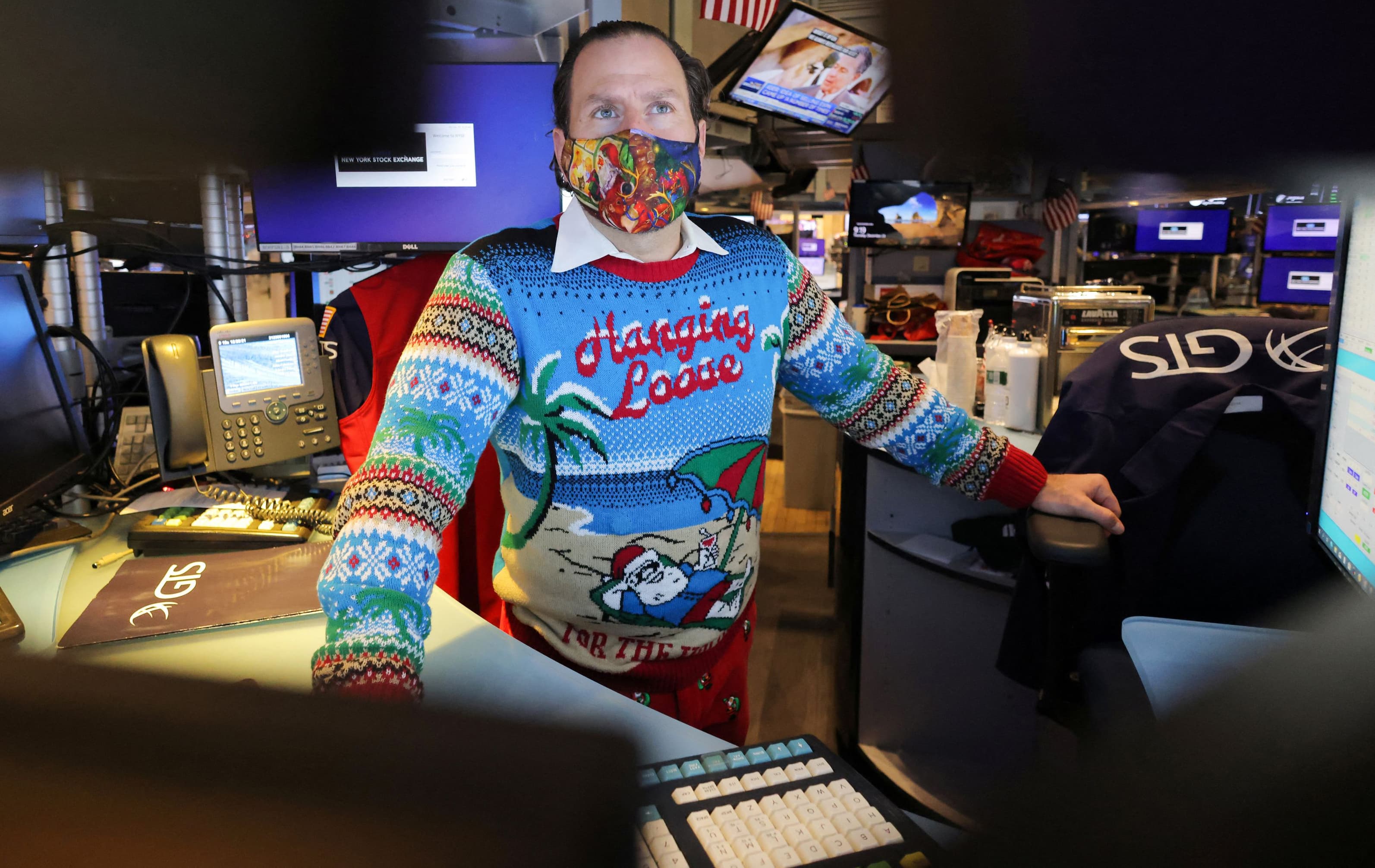U.S. futures point to slightly higher open as airline stocks slide after Covid-related cancellations

U.S. stock index futures indicated a higher start Monday as markets reopen after the Christmas holiday and investors assess the spread of the omicron Covid-19 variant.
Dow Jones Industrial Average futures rose by about 56 points. S&P 500 futures added 0.3% and Nasdaq 100 futures ticked up 0.4%.
Airline stocks fell after a holiday weekend that saw thousands of flights canceled due to Covid-related issues. The rampant spread of the omicron variant led to a staffing shortage at a time when airlines were looking to ramp up their schedules to meet high travel demand.
United Airlines fell 1.9% in premarket trading, while American Airlines dipped 1.7% and Delta Air Lines was off 1.5%.
Shares of GoDaddy jumped more than 4% in early morning trading after the Wall Street Journal reported activist investor Starboard Value LP took a 6.5% stake in the domain registrar.
Investors are looking for a Santa Claus rally to close out a year in which the S&P 500 has gained a whopping 25.8%. The benchmark index historically gains during the Santa Claus rally period — the final five trading days of the current year and the first two of the new year.
On Thursday, with markets closed Friday, the Dow Jones Industrial Average added 196.67 points, or 0.55%, to 35,950.56. The S&P 500 rose 0.62% to 4,725.79 and closed at a record. The 500-stock average sits less than 0.4% from its intraday record high. The Nasdaq Composite gained 0.85% to 15,653.37.
Helping boost sentiment were new studies suggesting that omicron has a lower risk of hospitalization than other Covid variants.
U.S. infectious disease expert Dr. Anthony Fauci said Sunday that cases of Covid-19 are likely going to keep surging as the omicron variant rapidly spreads across the globe.
“Every day it goes up and up. The last weekly average was about 150,000 and it likely will go much higher,” Fauci said on ABC’s “This Week.”
The U.S. has reported more than 52 million total cases, according to Johns Hopkins University. Driving the surge is the omicron variant, which took over as the dominant strain earlier this month.
A slew of economic data on Thursday last week showed a stable economy with improving labor and spending trends, but inflation at high levels. The Federal Reserve’s closely watched core personal consumption expenditures price index rose 0.6% in November from the month prior. Core PCE rose 4.7% year-over-year in November, higher than the 4.5% rate expected.
On the data front Monday, the Dallas Fed manufacturing index is due out at 10:30 a.m. ET.
—CNBC’s Jessica Bursztynsky and Maggie Fitzgerald contributed to this article.




